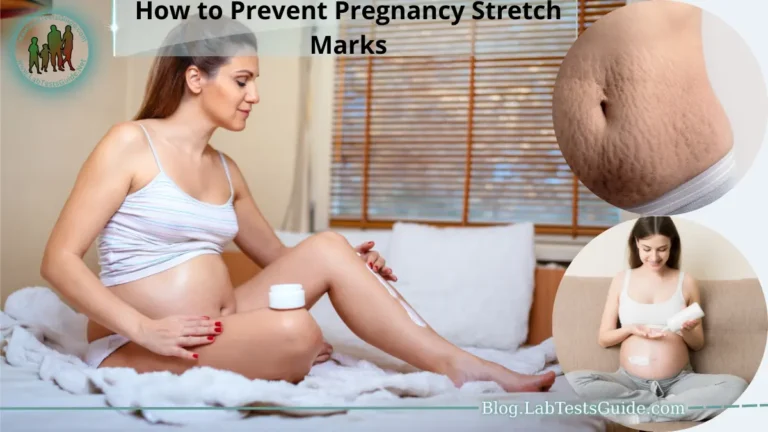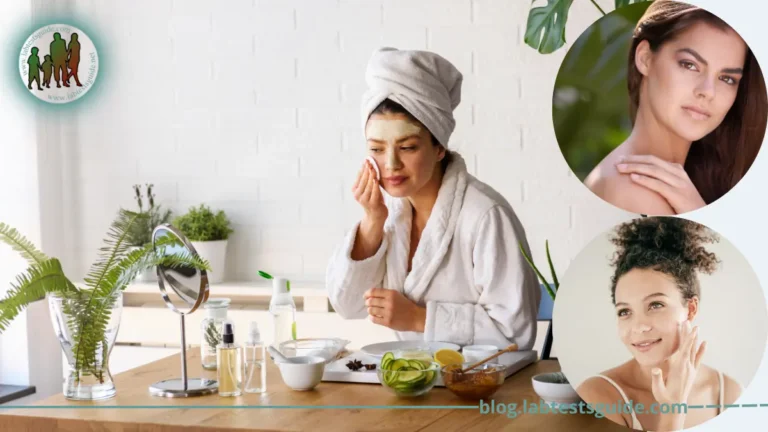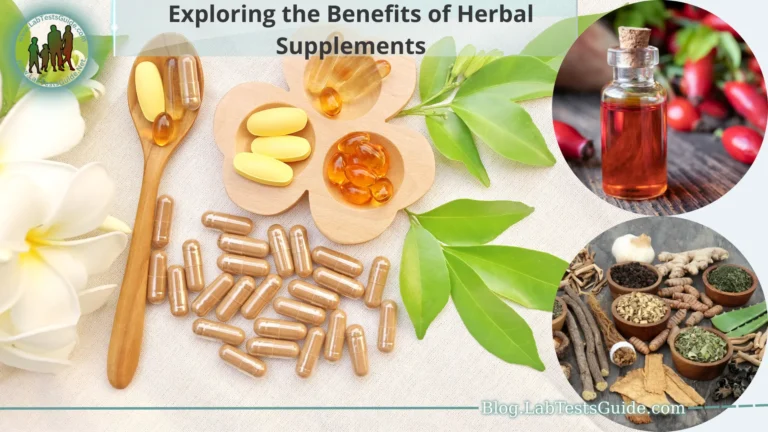Having healthy, luscious hair is not only aesthetically pleasing but also a reflection of overall well-being. Hair growth is a natural process influenced by various factors, including genetics, nutrition, lifestyle, and hair care practices. While everyone’s hair growth rate is different, promoting healthy hair growth is something we can all strive for.

This guide aims to provide you with practical and effective strategies to nurture your hair and enhance its growth. Whether you’re dealing with hair thinning or simply looking to maintain vibrant locks, the information presented here will help you make informed choices and develop a holistic approach to hair care.
What Is Hair Growth?
- Hair Follicle Anatomy: Hair growth originates from hair follicles, small sac-like structures located beneath the skin’s surface. Each hair follicle contains a papilla, a cluster of blood vessels that supply nutrients and oxygen to the growing hair strand.
- The Hair Growth Cycle: Hair growth follows a cyclical pattern consisting of three main phases: anagen, catagen, and telogen.
- Anagen Phase: This is the active growth phase, during which the hair follicle produces a new hair strand. The length of the anagen phase varies for different individuals, and it can last anywhere from 2 to 7 years. Hair grows approximately 1 centimeter per month during this phase.
- Catagen Phase: After the anagen phase, the hair follicle transitions into the catagen phase, a short transitional period lasting around 2 to 3 weeks. During this stage, the hair follicle shrinks and detaches from the papilla, preparing for the next phase.
- Telogen Phase: The telogen phase is the resting phase, lasting approximately 3 to 4 months. In this stage, the hair strand is fully formed but not actively growing. Eventually, the hair sheds as the new anagen hair pushes it out.
Factors Affecting Hair Growth:
- Genetics: Genetic factors play a significant role in determining hair growth patterns, hair thickness, and hair loss tendencies. Some people naturally have faster-growing hair due to their genetic makeup.
- Age: Hair growth tends to slow down with age. As we get older, the anagen phase shortens, resulting in thinner and slower-growing hair.
- Hormones: Hormonal changes, such as during pregnancy, menopause, or certain medical conditions, can affect hair growth and hair texture.
- Nutrition: Adequate nutrition is essential for healthy hair growth. Deficiencies in vitamins, minerals, and protein can lead to hair thinning and loss.
- Stress and Illness: Emotional or physical stress and certain illnesses can disrupt the hair growth cycle, leading to temporary hair shedding.
Hair Growth Tips and Care:
- Balanced Diet: Consuming a balanced diet rich in essential nutrients, including biotin, vitamins A, C, D, E, and minerals like iron and zinc, supports healthy hair growth.
- Scalp Care: Maintaining a clean and healthy scalp promotes optimal conditions for hair growth. Regularly shampooing, massaging, and avoiding excessive use of hair products can help.
- Avoiding Harsh Treatments: Limiting the use of heat styling tools, chemical treatments, and tight hairstyles that can cause hair damage is crucial for maintaining healthy hair growth.
- Hydration: Drinking plenty of water is essential for overall health, including hair health.
- Regular Trims: Trimming hair regularly removes split ends, preventing them from traveling up the hair shaft and causing damage.
How to Promote Healthy Hair Growth:
Promoting healthy hair growth involves a combination of proper nutrition, hair care practices, and lifestyle adjustments. Follow these practical tips and strategies to support strong, vibrant hair growth.
Nutritious Diet:
- Consume a balanced diet rich in proteins, vitamins (especially biotin, vitamin A, C, D, and E), and minerals (like iron and zinc) to provide essential nutrients for hair growth.
- Include foods such as eggs, fish, nuts, seeds, leafy greens, sweet potatoes, and fruits in your diet.
Scalp Care:
- Keep your scalp clean and free from excess oil and dirt by regularly washing your hair with a mild shampoo.
- Perform gentle scalp massages to improve blood circulation and stimulate hair follicles.
Limit Heat Styling and Chemical Treatments:
- Minimize the use of heat styling tools (hairdryers, straighteners, curlers) that can cause damage to the hair shaft.
- Avoid harsh chemical treatments like perms, relaxers, and excessive hair dyeing.
Protective Hairstyles:
- Opt for hairstyles that protect your hair, such as braids, buns, or ponytails, which reduce exposure to external damage.
- Use soft hair ties or scrunchies to avoid hair breakage.
- Avoid Tight Hairstyles: Avoid hairstyles that pull your hair tightly, as they can cause stress and damage to the hair follicles.
Proper Hair Care Routine:
- Use a suitable shampoo and conditioner for your hair type and avoid products containing sulfates and harsh chemicals.
- Gently towel-dry or air-dry your hair instead of rubbing it vigorously with a towel.
- Stay Hydrated: Drink plenty of water to maintain overall hydration, which is crucial for healthy hair growth.
- Manage Stress: Chronic stress can contribute to hair loss. Engage in stress-reducing activities such as yoga, meditation, or hobbies you enjoy.
- Adequate Sleep: Ensure you get enough restorative sleep each night, as sleep is essential for overall health, including hair health.
- Regular Trims: Trim your hair regularly to get rid of split ends and prevent them from traveling up the hair shaft.
- Hair Growth Supplements: Consult a healthcare professional before taking any hair growth supplements to ensure they are safe and suitable for your needs.
- Natural Remedies and Essential Oils: Some natural remedies and essential oils, like rosemary oil or aloe vera gel, may support hair health. Use them cautiously and perform a patch test first.
- Avoid Smoking and Excessive Alcohol: Smoking and excessive alcohol consumption can negatively impact hair growth, so try to avoid or limit them.
Proper Nutrition for Hair Growth:
Proper nutrition is a fundamental aspect of promoting healthy hair growth. The right nutrients provide essential building blocks for strong, shiny hair. Consider incorporating the following elements into your diet to support optimal hair health.
Protein-Rich Foods:
- Hair is primarily composed of a protein called keratin. Including protein-rich foods like lean meats, poultry, fish, eggs, and plant-based sources such as legumes, nuts, and seeds helps in promoting healthy hair growth.
Vitamins for Hair Health:
- Biotin (Vitamin B7): Supports the production of keratin and is crucial for hair strength and growth. Find it in eggs, nuts, seeds, and sweet potatoes.
- Vitamin A: Helps produce sebum, the natural oil that keeps the scalp moisturized. Sources include carrots, spinach, and sweet potatoes.
- Vitamin C: Supports collagen production, which aids in maintaining the hair’s structure. Citrus fruits, strawberries, and bell peppers are excellent sources.
- Vitamin D: Assists in hair follicle cycling and can be obtained from fatty fish, fortified dairy products, and sunlight exposure.
- Vitamin E: Acts as an antioxidant, protecting hair cells from damage. Find it in nuts, seeds, and leafy greens.
Minerals for Hair Health:
- Iron: Essential for carrying oxygen to hair follicles. Iron-rich foods include red meat, spinach, lentils, and fortified cereals.
- Zinc: Supports hair tissue growth and repair. Sources include oysters, beef, pumpkin seeds, and legumes.
- Omega-3 Fatty Acids: Found in fatty fish (salmon, mackerel, sardines) and flaxseeds, chia seeds, and walnuts, omega-3 fatty acids nourish the scalp and promote hair growth.
- Water and Hydration: Staying hydrated is vital for overall health, including hair health. Drink plenty of water to maintain proper hydration, which contributes to supple and healthy hair.
- Collagen Supplements: Collagen is a protein that supports hair strength and elasticity. Collagen supplements may be beneficial for some individuals, but consult a healthcare professional before adding them to your routine.
- Antioxidant-Rich Foods: Antioxidants protect hair follicles from damage caused by free radicals. Incorporate foods like berries, dark chocolate, and green tea into your diet.
- Avoid Crash Diets and Excessive Restriction: Rapid weight loss or extreme diets can lead to nutrient deficiencies that may negatively impact hair health. Focus on balanced, sustainable eating habits.
- Moderate Caffeine and Alcohol Intake: Excessive caffeine and alcohol consumption can contribute to hair dehydration, leading to brittle hair. Consume these beverages in moderation.
Hair Care Tips for Promoting Growth:
- Maintain Regular Washing and Conditioning: Keep your hair clean and moisturized with regular shampooing and conditioning.
- Choose Hair Products Wisely: Opt for shampoos and conditioners free from harsh chemicals and sulfates.
- Avoid Excessive Use of Styling Products: Minimize the use of hair styling products containing alcohol and chemicals.
- Gentle Scalp Massages: Stimulate hair follicles with gentle scalp massages to encourage growth.
- Use the Right Combing Technique: Detangle hair gently using a wide-tooth comb or soft-bristle brush.
- Limit Heat Styling: Reduce heat styling to prevent damage to your hair.
- Be Cautious with Chemical Treatments: Avoid overprocessing and chemical treatments that can weaken hair.
- Proper Hair Drying: Pat dry or use a microfiber towel to dry your hair gently.
- Protective Hairstyles: Choose protective hairstyles to shield hair from damage.
- Regular Trims: Trim your hair regularly to get rid of split ends.
- Avoid Tight Hairstyles: Refrain from tight hairstyles that stress hair follicles.
- Consider Silk or Satin Pillowcase: Use a silk or satin pillowcase to reduce friction and hair breakage.
Lifestyle Habits for Healthy Hair:
Maintaining a healthy lifestyle can significantly impact the growth and appearance of your hair. Consider adopting these lifestyle habits to support the health and vitality of your hair.
- Balanced Diet: Eat a nutritious diet rich in fruits, vegetables, lean proteins, and whole grains to provide essential nutrients for hair growth.
- Stay Hydrated: Drink an adequate amount of water daily to keep your body and hair hydrated.
- Manage Stress: Practice stress-reducing techniques like meditation, yoga, or deep breathing to minimize the negative effects of stress on hair health.
- Get Regular Exercise: Engage in regular physical activity to improve blood circulation, which nourishes hair follicles.
- Adequate Sleep: Aim for 7-9 hours of quality sleep each night to support hair growth and overall health.
- Quit Smoking: Smoking can harm hair follicles and impede hair growth. Quitting smoking can benefit both your hair and overall well-being.
- Limit Alcohol Consumption: Excessive alcohol intake can lead to dehydration, negatively affecting hair health. Moderate alcohol consumption is best.
- Sun Protection: Shield your hair from excessive sun exposure by wearing a hat or using hair products with UV protection.
- Avoid Tight Hats or Headbands: Wearing tight hats or headbands regularly can cause friction and lead to hair breakage.
- Maintain Regular Hair Care Routine: Stick to a consistent hair care routine that includes gentle washing, conditioning, and scalp care.
- Avoid Overbrushing: Brush your hair only when necessary to prevent unnecessary stress on the hair shaft.
- Minimize Chemical Exposure: Reduce exposure to pollutants and harsh chemicals that can damage hair. Consider using natural hair products.
Protecting Hair from Damage:
Protecting your hair from damage is essential to maintain its health and promote healthy growth. Implement these practices to safeguard your hair from various external stressors.
- Limit Heat Styling: Reduce the use of heat styling tools such as hairdryers, straighteners, and curling irons. When using heat, use a heat protectant spray and set the tools to lower temperatures.
- Avoid Excessive Brushing: Brush your hair gently and only when necessary. Overbrushing can lead to hair breakage and damage.
- Be Gentle with Wet Hair: Wet hair is more susceptible to damage. Avoid brushing or combing wet hair vigorously and opt for a wide-tooth comb.
- Protective Hairstyles: Choose hairstyles that minimize hair exposure to environmental factors and reduce friction, such as braids, buns, or loose ponytails.
- Avoid Tight Hairstyles: Refrain from wearing tight hairstyles like high ponytails or buns that can pull and stress the hair follicles.
- Protect from UV Rays: Shield your hair from the sun’s harmful UV rays by wearing a hat or using hair products with UV protection.
- Limit Chemical Treatments: Reduce the frequency of chemical treatments like hair dyeing, bleaching, and chemical straightening, as they can weaken the hair shaft.
- Be Mindful of Pool Water: Before swimming in chlorinated pools, wet your hair with clean water and apply a leave-in conditioner or oil to create a barrier against chlorine damage.
- Use Satin or Silk Pillowcases: Swap cotton pillowcases for satin or silk ones to minimize friction and prevent hair breakage while sleeping.
- Treat Hair with Care: Avoid rough handling of your hair, like tugging or pulling, which can lead to damage.
- Deep Conditioning Treatments: Regularly use deep conditioning treatments to nourish and strengthen your hair.
- Trim Regularly: Schedule regular trims to get rid of split ends and prevent further damage.
Supplements and Products for Hair Growth:
Hair Growth Supplements:
- Biotin
- Collagen
- Multivitamins
- Omega-3 Fatty Acids
- Iron
- Zinc
Natural Remedies and Essential Oils:
- Rosemary Oil
- Peppermint Oil
- Aloe Vera Gel
- Coconut Oil
- Castor Oil
Prescription Medications for Hair Loss:
- Minoxidil (Topical Solution)
- Finasteride (Oral Medication)
Hair Growth Products:
- Shampoos and Conditioners with Hair-Boosting Ingredients
- Serums and Leave-In Treatments
- Hair Masks for Deep Conditioning
Avoiding Common Hair Growth Myths:
Myth:
- Frequent Trims Make Hair Grow Faster: Trimming hair doesn’t affect its growth rate. Regular trims only remove split ends and prevent them from traveling up the hair shaft, leading to breakage.
- Shaving or Cutting Hair Makes It Thicker: Shaving or cutting hair doesn’t alter its texture or thickness. Hair thickness is determined by genetics and hormonal factors.
- Brushing Hair 100 Strokes a Day Enhances Growth: Excessive brushing can cause hair breakage. Brush your hair gently and only as needed to detangle.
- Hair Grows Faster Overnight with Special Products: There are no products that can make hair grow significantly faster overnight. Healthy hair growth is a gradual process.
- Massaging Onion Juice or Garlic on the Scalp Promotes Hair Growth: While these remedies have been popular, there is limited scientific evidence to support their effectiveness in hair growth stimulation.
- Hair Can Repair Itself with Products: Hair is not a living structure, and once it is damaged, it cannot repair itself. Hair products can help protect and nourish hair, but damaged hair remains damaged.
- Using Hair Conditioner Weighs Hair Down: Conditioner helps to moisturize and nourish hair, making it more manageable and healthier. When used correctly, it should not weigh hair down.
- Wearing Hats Causes Hair Loss: Wearing hats does not cause hair loss. However, tight hats may cause friction and breakage, so opt for looser-fitting styles.
- Scalp Massages Alone Can Cure Hair Loss: Scalp massages can improve blood circulation but cannot single-handedly reverse hair loss caused by underlying medical conditions.
- Hair Grows Faster in the Summer: Hair growth is not affected by the seasons. It grows at a fairly consistent rate year-round.
FAQs:
Does trimming hair regularly make it grow faster?
No, trimming hair does not affect its growth rate. Regular trims help maintain healthy hair by removing split ends and preventing breakage.
Can certain foods or supplements make hair grow faster?
While a balanced diet with essential nutrients supports overall hair health, there is no magic food or supplement that can significantly speed up hair growth overnight.
Does wearing hats cause hair loss?
Wearing hats does not cause hair loss. However, tight-fitting hats can lead to hair breakage due to friction.
Can stress cause hair loss?
Yes, stress can contribute to hair loss. Severe stress may lead to a condition called telogen effluvium, where hair follicles prematurely enter the resting phase and result in increased shedding.
Do hair growth shampoos and products really work?
Some hair growth products may help improve the overall health of the hair and scalp, but their effectiveness varies from person to person. Results depend on individual factors and underlying causes of hair loss.
Does frequent shampooing lead to hair loss?
No, regular shampooing does not cause hair loss. In fact, keeping your scalp clean can promote a healthy environment for hair growth.
Is hair loss hereditary?
Yes, hereditary factors play a significant role in hair loss. Male and female pattern baldness is often genetically influenced.
Can scalp massages stimulate hair growth?
Scalp massages can improve blood circulation to the scalp and hair follicles, potentially promoting hair growth. However, they are not a guaranteed solution for hair loss.
Is it normal to lose hair every day?
Yes, it is normal to shed around 50-100 hairs daily as part of the hair growth cycle. This shedding is replaced by new hair growth, and it does not lead to noticeable thinning in healthy individuals.
Conclusion:
In conclusion, promoting healthy hair growth requires a combination of proper nutrition, gentle hair care practices, and lifestyle adjustments. While there are no quick fixes or miracle solutions for rapid hair growth, adopting a holistic approach can yield positive results over time. Ensure your diet includes essential nutrients, such as proteins, vitamins, and minerals, to nourish your hair from within. Be mindful of your hair care routine, avoiding harsh treatments, and protecting your hair from damage caused by heat styling or tight hairstyles. Embrace stress management techniques, prioritize adequate sleep, and maintain an overall healthy lifestyle to support optimal hair health. Remember that hair growth is a gradual process, and consistency with these practices will lead to stronger, healthier, and more vibrant hair in the long run.






